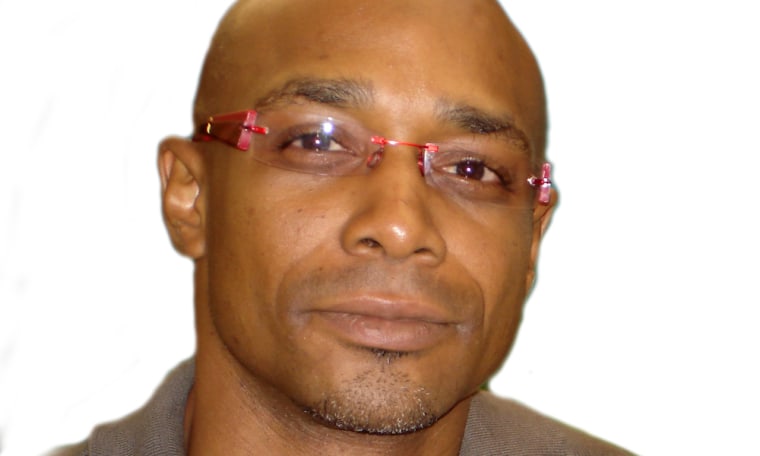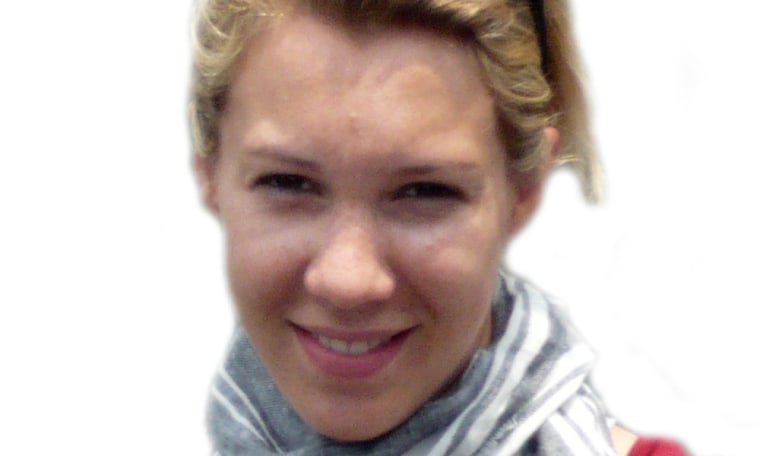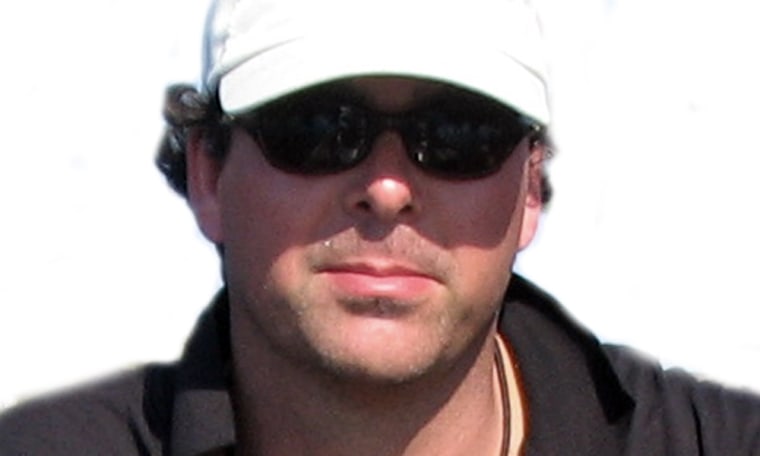While working on "Dead Men Talking," the producers of the show jotted down their experiences. Here are their thoughts from behind the scenes:
Getting adjusted to the morgue

Let’s be honest. Who isn’t afraid of death? So many things about it scare me: What if everyone thinks I’m dead but I’m really not? What happens if they bury me alive? And the bugs... Yick!
The first time I walked into that morgue I had no idea how I’d react. Would I throw up? Faint? Neither, it turns out. The smell made me a little woozy, but the feeling passed. Then there were the bodies. They looked like wax dummies: their skin yellowish, sometimes covered with purple blotches, sometimes marbled like meat at the butcher shop. I marveled at how just a day before these were live people, eating breakfast, driving to work. But after a while I stopped noticing them as much. They start to become part of the furniture in a place like this.
The 38 year-old who died in a motorcycle accident and the 19 year-old who hanged himself, those are the cases that hit me the hardest. They were so young and their deaths so avoidable.
As for the families, how could it be anything but awkward to talk to them? They’re in the middle of this tragic ordeal and suddenly NBC News is asking to videotape at the scene? Incredibly, over time we got much better at that and families started saying yes.
So am I still afraid of death? Sure. But, that said, spending time in a morgue did convince me of one thing: I now know, unequivocally, when you’re dead, you’re really dead.
-Caroline Sommers, Producer
No special effects in the morgue

I’ve never been afraid of death. In fact I’ve witnessed it on many occasions as a TV producer filming in the ERs of hospitals throughout the country. In the ER, most of those cases were people coming in alive and leaving dead after the doctors have done all that they could to keep those people in the world of the living.
I must say that being in the morgue is quite different than the ER. When you walk in the morgue, the bodies are laying on the table still and lifeless. Their faces are frozen in an expression of death, revealing what they may have gone through as they were breathing their last breath. It can be quite eerie. In the beginning, it was hard to not look at these bodies and wonder about who these people were in the world. It made me wonder if they had a chance to complete whatever it is that they were supposed to do on this planet. Did they die with regrets, disappointment, and with unfinished business or were they at peace with themselves as they were slipping away into the realm of death? These things I will never know, but when I am standing next to a stiff body, and I’m pear down into the lifeless face, I can’t help but wonder about my own mortality and am I ready for my own death.
Because of TV and movies, the special effects world is so advanced now that real blood and guts don’t seem to affect us as greatly. We are desensitized to the gore and I am not exempt. After a few days of autopsy watching, I too was becoming more desensitized. The bodies that laid open after the organs were removed started looking like a fake corpses that were waiting to play their part in the next horror movie. There was one major difference between a special effects body and a real one, and that is smell. The smell of decomposed bodies is unmatched in my memory, and it is one of the worst smells imaginable. Just taking a sniff through the nose and my body was reacting with some involuntary gagging. From this point on you learn to breath through your mouth, hoping that you don’t leave with death breath.
Dr. Spitz and his team of assistants and medical investigators were incredibly great and accommodating. They made the job of dealing with autopsies comfortable because of how at ease they were in their world. I’m thankful for the opportunity. How often does anyone get an chance to experience the real world of autopsies, instead of sitting on the couch watching "CSI"? And I’ll tell you: Once you’ve seen the real thing, it is incredibly hard to watch the TV version without screaming “That’s fake!” to the screen.
-Alejandro Smith, Producer
Face-to-face with the idea of death

I have never been scared of the actual physicality of dying. Like everyone, I hope that when my time is up I will be afforded the luxury of dying peacefully and painlessly. But what does scare me is the thought of not having enough time. Not having enough time to see the world, to have a family and watch them grow, to leave my mark on this Earth.
This fear was made all too real for me by Jill Moore’s untimely death. She was just 44 when she passed away suddenly while we were filming this television series, leaving behind a grieving and confused husband and two young children. She will never see her daughter or her son go to their first dance, or begin college. She will never be a grandmother, and will never experience the joy of retirement with her husband.
But just as devastating to witness was the death of Irene Stafirsky. At 78, people might write off her death, saying, “Well, she was old, she had lived a full life.” But at 78, I imagine most people are not ready to die. Irene had been married to the same man, her high school sweetheart, for 60 years, leaving him for the first time in his life, alone.
Working alongside dead bodies, surprisingly, was less difficult than working with those who remain behind. In the morgue, the bodies appear as wax mannequins, almost as if they await their début at Madame Tussauds. It is clear looking into their glassy eyes and frozen expressions that whatever spirit or soul was there is surely gone. They feel no pain when Dr. Spitz cuts in to them; they hardly even bleed, a testament to their lifelessness. Those left behind, however, are left broken and hurting.
What I take away with me from this shoot is the resolution to live every day like it’s my last. Take nothing for granted. And take no one for granted. Make an effort not to part from a loved one on a bad note. If you fight in the morning before you leave for work, or at night before you go to sleep, fix it before you part ways. You may never get a chance to right the wrong. At least not in this world.
-Lizzie Blenk, Associate Producer
The morgue: A 24-hour operation

When I received this assignment, I wasn’t sure what to expect. Of course I had a rough idea of what an autopsy is – it’s an exam on someone who has died – but I really had no idea how a medical examiner's office functions or what an autopsy would be like. I definitely know now.
After flying into Detroit, I drove to Macomb County – about a half an hour outside the city. The first thing I noticed was that I was definitely in auto business country. First I drove past the giant Uniroyal tire on the highway – definitely haven’t seen that in any other city I’ve traveled to. And when I arrived in Macomb County, I passed several factories for Ford & G.M. & Chrysler.
When we met with the medical examiner's staff, I got the impression they were excited to work with us. I got the impression that everyone that works there loves their job. There’s always something different going on – different cases with different questions to answer. Each day brings new mysteries that they get to solve.
It’s interesting that the police call them whenever the police respond to a dead body. It’s a 24-hour operation and rarely is there downtime. It seems people are dying all the time – which, obviously, they are. But I didn’t realize how much of a business it is.
Going to death scenes was definitely the hardest thing emotionally I’ve had to do in a long time. Usually it’s a family member we would talk with at the scene, and I think the last people on earth they expected to come through the door was a TV crew. How awkward! But it’s my job, and I try to be as nice and understanding as possible. It’s an important job the medical examiner's office does – making sure every that any suspicious death is investigated and finding answers as to why people die. It helps the family know what happened to their loved one, and just as important, if not more so, it also helps the family know if there is some type of genetic disease that they should get tested for. If someone died from coronary artery disease, for example, that person's relatives might want to get checked.
Some families understood that I was just there doing my job – others didn’t want any part of it – and I understand that. But I think our program is important. I think that a lot of people will find what the medical examiners office does to be very interesting. I also think that watching our show will help people deal with death better when it happens in their family. Our program de-mystifies the death process, which may be comforting to people when they are faced with an unexpected death and don’t really know what to do. Our program also gives a chance for the family’s of the deceased to have a fitting tribute or memorial done for their loved one. And of course one the biggest things our program does is let people out there know about various types of disease that they might want to get tested for. At least some good can come from everyone’s death.
So dealing with the families at death scenes was tough emotionally. The autopsy is tough on the senses. The smells are really bad. I definitely gagged several times and couldn’t wait to get out of there. And the autopsy procedure of cutting people open and eviscerating their organs for examination left me with some pretty horrible images that still flash in my head. I don’t think visually anything else will ever shock me quite as much – I kind of feel I’ve seen it all now. I just stayed focused on the science of what’s involved to get through it.
Watching the autopsies definitely made me feel a little more at peace with dying. I mean, everyone is going to end up on the slab some day. It’s part of life, and now I’ve seen that first hand. There’s no need to worry about it — when your time comes, it comes.
Seeing how quickly a body decomposes was interesting. We think of our bodies as these permanent things, but if a body is left out in the elements for a few weeks, there’s nothing left but bones. We go back to nature. It’s all a process that we’re a part of just like animals, plants and insects.
But despite how natural death is, it’s still an emotional tornado for the families involved, and my heart went out to every scene we went to. Nonetheless, the medical examiner's staff always acted professional and comforted the families involved. It’s a tough job they have to do day in and out, and I think the families were all thankful for the job they do.
All the cases were special in their own way, but the Andrea Bean case sticks out for several reasons. Fist, the scene at her death was bizarre – blood streaked all over the house. Everyone definitely thought it was murder, but then evidence seemed to point towards suicide. If it was suicide, why was there blood everywhere? Strange! On top of that, Patti Roland, one of the medical investigators we profiled, knew the victim very well. It made the whole situation very emotional.
Overall, this was a great experience that let me see things most people never do. I think those that watch the series will get a unique look at a business that will touch everyone’s lives, but they just don’t know it yet.
-Peter Reiss, Producer